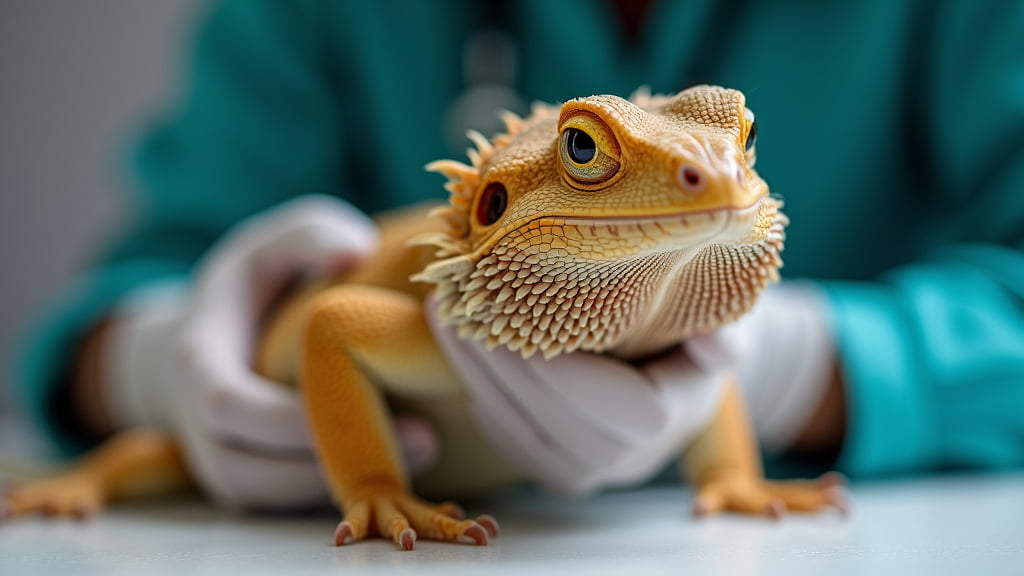Bearded Dragon Vet Visits: A Comprehensive Guide to Keeping Your Pet Healthy
Bearded dragons, with their friendly demeanour and fascinating behaviours, are among the most popular exotic pets. However, many owners overlook the importance of regular vet visits to ensure their scaly friends stay in the pink of health. In this guide, we’ll explore everything you need to know about bearded dragon vet visits, from routine check-ups to recognising when emergency care is needed.
Why Regular Vet Visits Are Essential
Preventive Health Care
Just like any other pet, regular vet visits are crucial for preventive health care. A vet specialising in reptiles can identify potential health issues before they become serious problems. This includes monitoring your bearded dragon’s growth, diet, and overall wellbeing. Early detection of conditions like metabolic bone disease can make a significant difference in treatment and recovery.
Establishing a Baseline
When you first get your bearded dragon, setting up an initial vet visit is recommended. This allows the vet to establish a health baseline, making it easier to identify deviations in the future. It also provides an opportunity to discuss proper care, dietary needs, and environmental setups specific to your pet’s needs.
Preparing for Your Bearded Dragon’s Vet Visit
Choosing the Right Vet
Selecting a vet experienced with reptiles is paramount. Not all veterinarians have the specialised knowledge required to care for bearded dragons. Look for a vet with a proven track record in reptile care, and don’t hesitate to ask for credentials or references. The British Veterinary Association is a great place to start your search.
What to Bring
When bringing your bearded dragon to the vet, it’s helpful to have:
- A secure, ventilated carrier
- A recent faecal sample for parasite testing
- A list of your pet’s dietary habits, including the types and frequency of food given
- Notes on any behavioural changes or symptoms
Questions to Ask
Prepare a list of questions to ensure you cover all bases:
- Is my bearded dragon’s diet appropriate?
- Are there any signs of nutritional deficiencies or parasites?
- What can I do to improve their habitat?
- How often should I bring my bearded dragon in for check-ups?
Understanding Common Health Issues
Nutritional Deficiencies
One of the most common issues bearded dragons face is nutritional deficiencies, particularly calcium and vitamin D3. Symptoms can include lethargy, swollen limbs, and softening of the jaw and limbs. Your vet can guide you on dietary adjustments and the need for supplements to correct these imbalances.
Parasites and Infections
Parasites are another prevalent issue, especially if your bearded dragon is housed with other reptiles or has exposure to wild-caught insects. Regular faecal exams help detect parasites early. Signs to watch for include:
- Weight loss
- Diarrhoea
- Lack of appetite
Infections, whether bacterial, viral, or fungal, also require prompt attention. Respiratory infections manifest as wheezing, sneezing, or excess mucus around the nose and mouth. Skin infections or abscesses can appear as discoloured patches or lumps. Both conditions necessitate immediate vet care.
Metabolic Bone Disease (MBD)
Metabolic Bone Disease is a critical condition resulting from calcium and vitamin D3 imbalances. Symptoms can range from tremors and muscle twitching to more severe manifestations such as skeletal deformities and fractures. MBD is serious but preventable with proper lighting, diet, and supplementation. Early detection through vet visits can significantly improve outcomes.
Emergency Vet Visits
Signs of a Health Crisis
Knowing when to rush your bearded dragon to an emergency vet can save their life. Be aware of these critical signs:
- Severe lethargy or unresponsiveness
- Sudden weight loss
- Difficulty breathing
- Bloody stools
- Visible injuries or broken bones
Cost and Preparation
Emergency visits can be expensive. It’s wise to set aside a financial buffer for unforeseen veterinary costs. Additionally, having an emergency vet’s contact information readily accessible can save precious time in a crisis.
Conclusion: The Key to a Long, Healthy Life
Regular vet visits are the cornerstone of a long, healthy life for your bearded dragon. From preventive care to emergency interventions, your vet plays a crucial role in keeping your pet happy and healthy. By investing time in selecting the right vet and staying vigilant about potential health issues, you ensure your bearded dragon thrives.
For more in-depth guides on bearded dragon care and other exotic pets, check out our Exotic Pet Care section. For additional resources, consider visiting the Reptile Health and Welfare Association.
Meta Description: Ensure your bearded dragon stays healthy with comprehensive vet visits. Learn why regular check-ups, understanding common health issues, and emergency care are vital in our expert guide.
By staying proactive about your bearded dragon’s health, you’ll enjoy many years of companionship with your fascinating pet.

